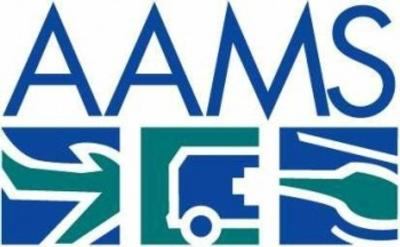Thu, Nov 18, 2021
Say Rules Ignore Significant AirMed Variables
The Association of Air Medical Services (AAMS) has filed suit in federal court challenging interim final regulations of the No Surprises Act. They believe that aspects of the implementation of the Act as they currently stand have left them unfairly vulnerable in comparison to other entities in the insurance ecosystem, owing to the special factors air ambulance service involves.

They state that they continue to support the aims of the Act, including the removal of patients from the middle of billing disputes between air ambulance providers and their patients' insurers. The point of dispute lies in the dispute resolution process, a tool meant to open negotiation between providers and insurers, where both would make their case for payment before an independent entity based on statutory factors. When the act was passed, Congress reportedly intended that no single statutory factor received special weighting in the process.
The interim regulations issued however, ignore Congressional intent, says the AAMS. They focus instead on one factor, the Qualified Payment Amount, or the insurer's median in-network rate for only a subset of their contracts for a given service in each area. The process ignores many factors inherent to air medical service, like aircraft type, the quality of services provided en route, and the acuity of the patient, that must be considered going forward to ensure the sustainability of the industry.

"Air Medical Services transport the sickest, most severely injured patients in our healthcare system - we fully support protecting those patients from these payment disputes and worked with Members of Congress and our larger healthcare community partners to ensure that happens,” said Cameron Curtis (pictured), AAMS President and CEO. “However, the fair and transparent process that we all supported is not the process being implemented. Instead, we are faced with a scenario in which a patient is in an emergency, is transported by a helicopter at the request of a trained first responder or qualified physician, and that patient’s insurer gets to unilaterally determine the amount they pay. This will have disastrous consequences for access to emergency air ambulance services.”
AAMS hopes their litigation will help revise these flaws in the interim regulations, return to the original intent of Congress, and protect the foundations of aerial medicine. "The intent of this law is clear," said Curtis. "And AAMS plans to fight for its members and their patients to ensure the sustainability of this necessary service."
More News
Ultrahigh Frequency (UHF) The frequency band between 300 and 3,000 MHz. The bank of radio frequencies used for military air/ground voice communications. In some instances this may >[...]
During The 7 Second Descent, There Was Another TAWS Alert At Which Time The Engine Remained At Full Power On October 24, 2025 at 2115 mountain daylight time, a Cirrus SR22T, N740TS>[...]
From 2009 (YouTube Edition): Educational Organization Aims to Inspire by Sharing Tuskegee Story Founding leader Don Hinz summarized the Red Tail Project’s mission in simple, >[...]
“This feels like an important step since space travel for people with disabilities is still in its very early days... I’m so thankful and hope it inspires a change in m>[...]
Also: New Katanas, Kern County FD Training, IndiGo’s Botched Roster, MGen. Leavitt Named ERAU Dean The Australian Transportation Safety Bureau (ATSB) has wrapped up its inves>[...]
 ANN's Daily Aero-Term (12.19.25): Ultrahigh Frequency (UHF)
ANN's Daily Aero-Term (12.19.25): Ultrahigh Frequency (UHF) NTSB Prelim: Cirrus Design Corp SR22T
NTSB Prelim: Cirrus Design Corp SR22T Classic Aero-TV: The Red Tail Project--Carrying the Torch of the Tuskegee Airmen
Classic Aero-TV: The Red Tail Project--Carrying the Torch of the Tuskegee Airmen Aero-News: Quote of the Day (12.19.25)
Aero-News: Quote of the Day (12.19.25) Airborne 12.17.25: Skydiver Hooks Tail, Cooper Rotax Mount, NTSB v NDAA
Airborne 12.17.25: Skydiver Hooks Tail, Cooper Rotax Mount, NTSB v NDAA




